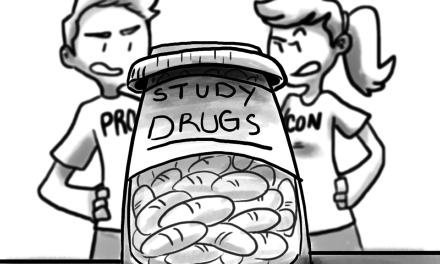During February’s State of the Union address, President Obama called for raising the federal minimum wage to $9 per hour and tying it to inflation – he also made a point to mention that it was something he and Mitt Romney agreed upon during the election.
Over four years since the economic collapse, the economy is still on the front burner of political issues. Enacting legislation to raise the minimum wage would be an invaluable way to help recovery as well as to strengthen the long-term foundation of the economy.
Contrary to what one might expect, a recent Gallup poll shows staggering support for such a proposal. Seventy-one percent of all Americans are in favor of raising the minimum wage, including 90 percent of Democrats, 68 percent of Independents and even 50 percent of Republicans.
Such action has often been seen as another point on the long progressive wish list, but the numbers do not lie.
States with a minimum wage higher than the federal government’s enjoy economic benefits. The states with the highest minimum wages, Washington, Oregon and Vermont, enjoy stronger economies than those without a minimum wage at all like Alabama and Louisiana, or Georgia’s $5.15 per hour wage, which is tied for the lowest in the nation.
New York Governor Andrew Cuomo is currently in the process of raising his state’s minimum wage to $9 per hour, which also indicates to Washington that this can be accomplished.
A higher minimum wage adjusted for inflation also benefits the economy on a national level. Minimum wage was at its highest in the 1960s and early ’70s when the economy was booming. Since 1980, however, it has remained significantly lower, while income inequality has risen by 10 to 20 percent and raises in wages have been nearly exclusive to top earners.
Raising the minimum wage and tying it to inflation will not single-handedly lift people from poverty. Short-term growth like enacting better tax policies as well as long-term investments in education are necessary. But it is perhaps the easiest action Congress can take to fundamentally change what it means to work in America and to ultimately redefine poverty.
During the immigration debate, many conservatives like Marco Rubio, Paul Ryan and Rand Paul have been quick to point out that the Republican Party’s goal is to lift people out of poverty. Why not have them put their money where their mouths are? Granted, part of the rigid Republican dogma includes the unfounded belief that government policy cannot lead to economic growth, but what better way to take such simple yet transformative action?
Ronald Reagan himself said that the best social program is a job, so why not have better-paying jobs and reduce the need for welfare while we’re at it?
We can only expect that Republicans in Congress will label it as a socialist policy that will hurt the beloved “job creators” of the country, but if the United States wants long-term economic growth that a quick tax cut gimmick can’t offer, this is an apt solution.
In the last election, Republicans tried to make the economy sound worse than it is, so there can not be much of an expectation that they would actually try to improve it. They also have a tendency to ignore public sentiment on issues like taxing the wealthy and gay marriage, so despite a mandate to raise minimum wage, one should not be too hopeful.
But if they truly are interested in rebranding themselves and appealing to a wider share of Americans, supporting an increase of minimum wage and tying it to inflation is imperative.
The common perception surrounding a president’s second term agenda is that it gets bogged down and unrealized.
Especially with gun control legislation and immigration reform in the foreground of the agenda on Capitol Hill, such an increase may be unlikely. It is, however, difficult to ignore such a clear mandate from the American people.
Raising the minimum wage not only has economic benefits, but it is also the morally right thing to do. As the President also said during his State of the Union address: “This single step would raise the incomes of millions of working families. It could mean the difference between groceries or the food bank, rent or eviction, scraping by or finally getting ahead.”
Online Editor Ross Fogg is a College junior from Fayetteville, Ga.
The Emory Wheel was founded in 1919 and is currently the only independent, student-run newspaper of Emory University. The Wheel publishes weekly on Wednesdays during the academic year, except during University holidays and scheduled publication intermissions.
The Wheel is financially and editorially independent from the University. All of its content is generated by the Wheel’s more than 100 student staff members and contributing writers, and its printing costs are covered by profits from self-generated advertising sales.





Raising the minimum wage would be bad for small businesses. Many would have to close and jobs would be lost.
I sincerely hope Ross Fogg suffers from a mental disability other than liberal fever.
I cannot believe you were admitted to Emory.
I think we need to put forth a public list of names of students who- by demonstration of their own ‘intelligence’ is worthy of dismissal from the university immediately.
I can start.
1. Ross Fogg